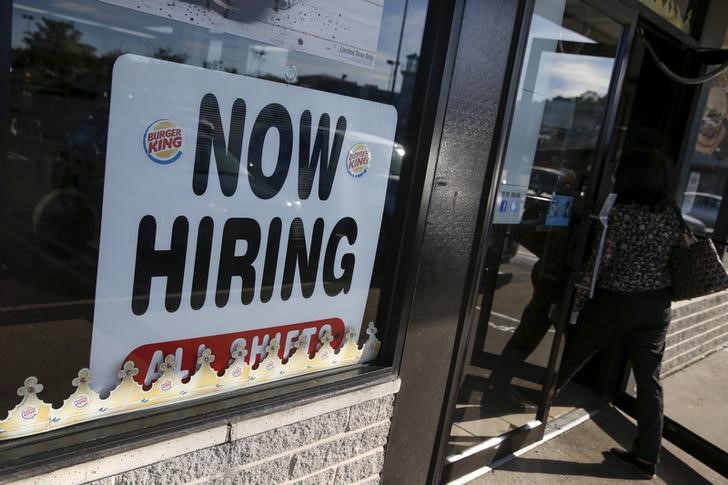(Bloomberg Opinion) -- Have corporate tax cuts made American workers better off, at least in terms of pay? It’s still pretty hard to see in government employment data.
Let’s be clear: It’s still too early to judge the success of the Tax Cuts and Jobs Act, which President Donald Trump signed into law in December. The important test will be whether it leads companies to do more investment in coming years, boosting the economy’s longer-term growth potential.
That said, the Trump administration has made a big deal out of the tax reform’s effect on workers’ wages, and companies have played along by citing it in their decisions to give raises. So it’s worth seeing whether this is reflected in the aggregate data.
When I checked a couple months ago, I found pretty much zero evidence that companies were increasing wages any more than they otherwise would have. Now that we have data from two more jobs reports, let’s take another look.Overall, wage gains do not appear to have accelerated. From December through April, average hourly earnings increased at an annualized pace of 2.3 percent, significantly slower than in 2017. Here’s a chart showing the annualized gain for each month:
Also, industries getting bigger tax breaks aren’t giving bigger raises. Two months ago, there was no correlation between the size of tax cuts and wage gains across sectors. Now it’s strongly negative. Companies engaged in wholesale trade reduced wages, even though they’re supposed to save 40 percent during the next decade (according to the Penn Wharton Budget Model). Utilities, among the biggest losers in the tax reform, raised wages at a 6.4 percent annualized rate. Here’s a chart:
A different measure -- how much companies are boosting wages over and above what they were doing before -– tells a similar story. Here’s a juxtaposition of expected tax savings with how much pay increases accelerated in December through April, compared with the previous year:
Again, the correlation is negative.
I’ll repeat that this is not necessarily conclusive. By other measures, or over time, some effects may emerge. Perhaps I’ll check in again later.
